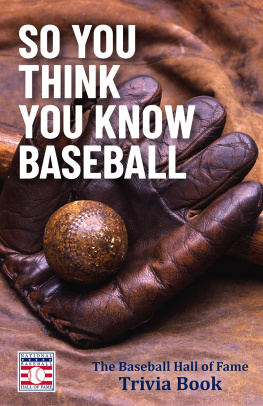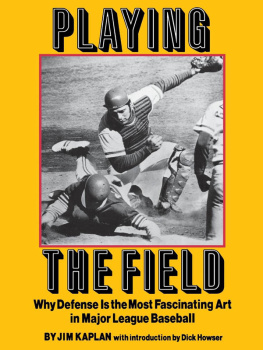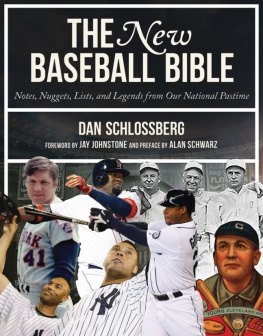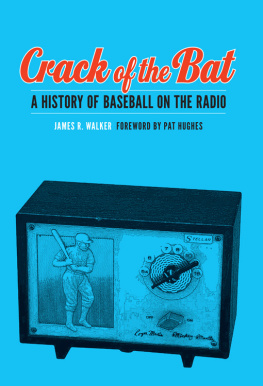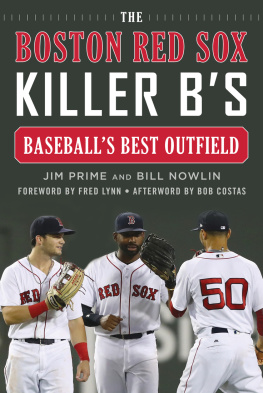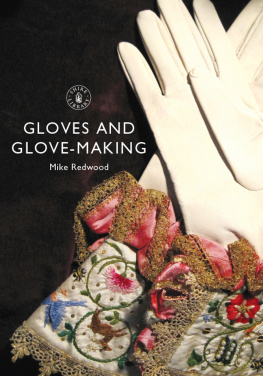
THE BASEBALL GLOVE
The baseball glove is a ubiquitous item, a crucial piece of equipment in the game of baseball, and it offers the opportunity to examine the production of material culture and social practice at numerous levels. Where and how is a glove made, and how does its manufacture square with the narratives surrounding its place in American cultural life? What are the myths, superstitions, and beliefs surrounding its acquisition, care, use, and significance? How does a glove function as the center of a web of cultural practices that illustrate how individuals relate to a consumer good as a symbol of memory, personal narrative, and national identity? How do the manufacturers of baseball gloves draw upon, promote, and in some sense create these practices? How do these practices and meanings change in other national and cultural contexts?
The Baseball Glove offers students the opportunity to examine these questions in an engagingly written and illustrated book that promotes hands-on interaction with a quintessential item of material culture. At the same time, the book gives students the space for critical self-reflection about the place of material goods like sporting equipment in their lives, and it provides the chance to learn different methodological approaches to studying everyday objects.
David Jenemann is Associate Professor in the Department of Englishs program in film and television studies at the University of Vermont.
The Routledge Series for Creative Teaching and Learning in Anthropology
Editor: Richard H. Robbins, SUNY Plattsburgh and Luis A. Vivanco, University of Vermont
This series is dedicated to innovative, unconventional ways to connect undergraduate students and their lived concerns about our social world to the power of social science ideas and evidence. We seek to publish titles that use anthropology to help students understand how they benefit from exposing their own lives and activities to the power of anthropological thought and analysis. Our goal is to help spark social science imaginations and, in doing so, open new avenues for meaningful thought and action.
Books in this series pose questions and problems that speak to the complexities and dynamism of modern life, connecting cutting edge research in exciting and relevant topical areas with creative pedagogy.
Available
The Baseball Glove
History, Material, Meaning, and Value
David Jenemann
Persian Carpets
The Nation as a Transnational Commodity
Minoo Moallem
An Anthropology of Money
A Critical Introduction
Tim Di Muzio and Richard H. Robbins
Coffee Culture, 2e
Local Experiences, Global Connections
Catherine M. Tucker
Re-Imagining Milk, 2e
Cultural and Biological Perspectives
Andrea S. Wiley
Forthcoming
Seafood
From Ocean to Plate
Richard Wilk & Shingo Hamada
Love Letters
Saving Romance in the Digital Age
Michelle Janning
First published 2018
by Routledge
711 Third Avenue, New York, NY 10017
and by Routledge
2 Park Square, Milton Park, Abingdon, Oxon, OX14 4RN
Routledge is an imprint of the Taylor & Francis Group, an informa business
2018 Taylor & Francis
The right of David Jenemann to be identified as author of this work has been asserted by him in accordance with sections 77 and 78 of the Copyright, Designs and Patents Act 1988.
All rights reserved. No part of this book may be reprinted or reproduced or utilised in any form or by any electronic, mechanical, or other means, now known or hereafter invented, including photocopying and recording, or in any information storage or retrieval system, without permission in writing from the publishers.
Trademark notice: Product or corporate names may be trademarks or registered trademarks, and are used only for identification and explanation without intent to infringe.
Library of Congress Cataloging-in-Publication Data
Names: Jenemann, David, 1971- author.
Title: The baseball glove: history, material, meaning, and value/David Jenemann.
Description: New York, NY: Routledge, 2018. | Series: The Routledge series for creative teaching and learning in anthropology | Includes bibliographical references and index.
Identifiers: LCCN 2017059116 (print) | LCCN 2018005570 (ebook) | ISBN 9781315526737 (Master Ebook) | ISBN 9781315526720 (Web pdf) | ISBN 9781315526713 (ePub) | ISBN 9781315526706 (Mobipocket) | ISBN 9781138682030 (hardback: alk. paper) | ISBN 9781138682047 (pbk.: alk. paper)
Subjects: LCSH: Baseball gloves.
Classification: LCC GV879.7 (ebook) | LCC GV879.7.J46 2018 (print) | DDC 796.357028/4dc23
LC record available at https://lccn.loc.gov/2017059116
ISBN: 978-1-138-68203-0 (hbk)
ISBN: 978-1-138-68204-7 (pbk)
ISBN: 978-1-315-52673-7 (ebk)
Typeset in New Baskerville
by Sunrise Setting Ltd, Brixham, UK
For Don Wright
CONTENTS
The premise of these short books on the anthropology of stuff is that stuff talks, that written into the biographies of everyday items of our livescoffee, T-shirts, computers, iPods, flowers, drugs, and so forthare the stories that make us who we are and that make the world the way it is. From their beginnings, each item bears the signature of the people who extracted, manufactured, picked, caught, assembled, packaged, delivered, purchased, and disposed of it. And in our modern market-driven societies, our lives are dominated by the pursuit of stuff.
Examining stuff is also an excellent way to teach and learn about what is exciting and insightful about anthropological and sociological ways of knowing. Students, as with virtually all of us, can relate to stuff, while at the same time discovering through these books that it can provide new and fascinating ways of looking at the world.
Stuff, or commodities and things, are central, of course, to all societies, to one extent or another. Whether it is yams, necklaces, horses, cattle, or shells, the acquisition, accumulation, and exchange of things is central to the identities and relationships that tie people together and drive their behavior. But never, before now, has the craving for stuff reached the level it has; and never before have so many people been trying to convince each other that acquiring more stuff is what they most want to do. As a consequence, the creation, consumption, and disposal of stuff now threaten the planet itself. Yet to stop or even slow down the manufacture and accumulation of stuff would threaten the viability of our economy, on which our society is built.
This raises various questions. For example, what impact does the compulsion to acquire stuff have on our economic, social, and political well-being, as well as on our environment? How do we come to believe that there are certain things that we must have? How do we come to value some commodities or form of commodities above others? How have we managed to create commodity chains that link peasant farmers in Colombia or gold miners in Angola to wealthy residents of New York or teenagers in Nebraska? Who comes up with the ideas for stuff and how do they translate those ideas into things for people to buy? Why do we sometimes consume stuff that is not very good for us? These short books examine such questions, and more.
by Bill Lee
Necessity is the mother of invention!


